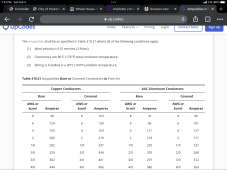chaostactics
New Member
I need a fuse for my Victron 100|50 where it connects to the Lyxn distributor via 6AWG. As I understand what I'd want is a 70A fuse. I can only find 70A in AMI/MIDI I can find 80A and 60A mega fuse. What's the best option?
It's 600 W of panels in parallel with a
It's 600 W of panels in parallel with a






